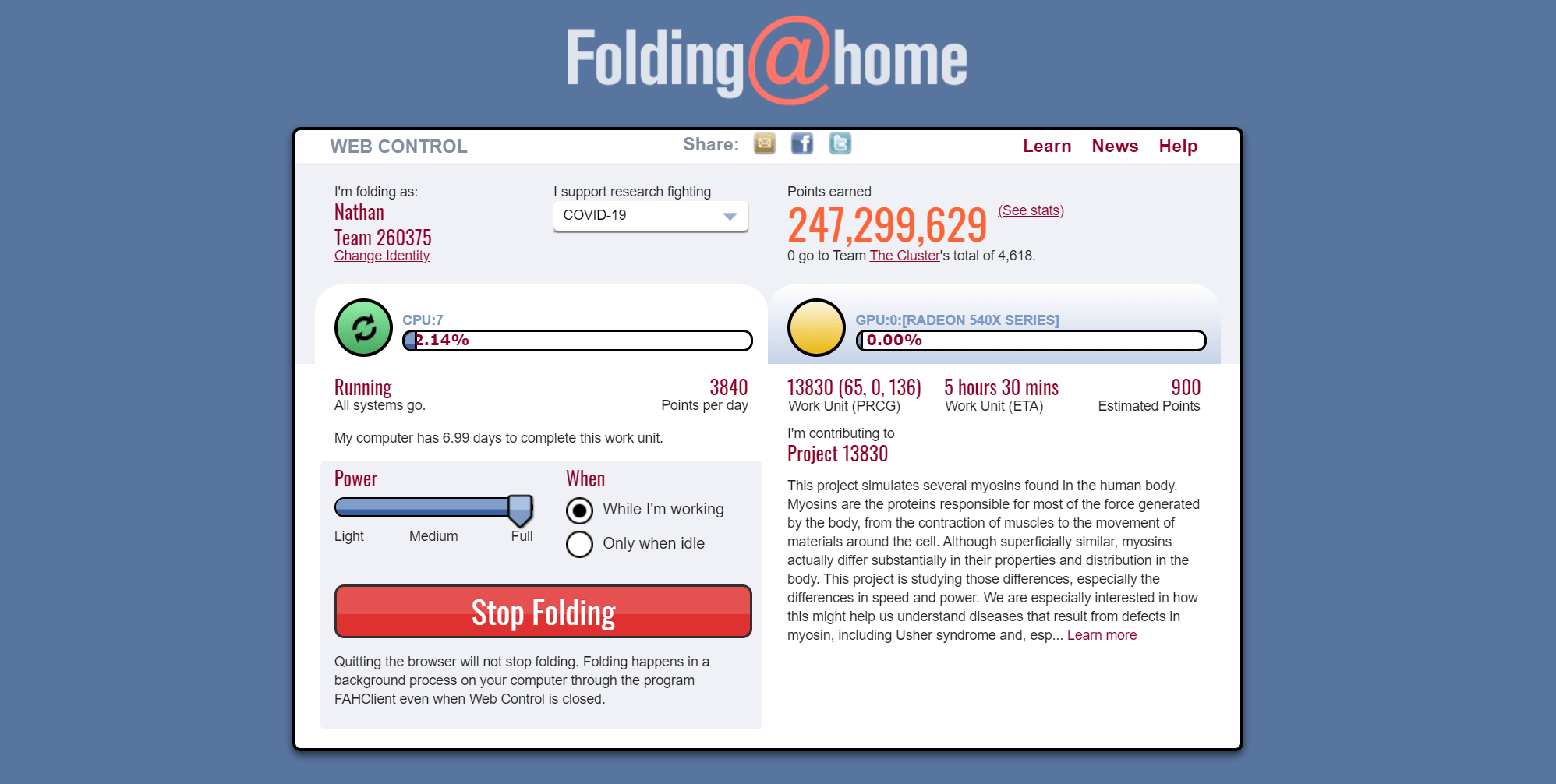With all the chaos happening around the world at the moment, thanks COVID-19, you may be wondering if there’s any extra ways you can fight the virus on top of social distancing and following the government’s guidelines – the answer is YES! You can help beat COVID-19 with your computers at home through a process called, distributed computing, which is where a bunch of computers essentially team up to calculate values or create formulas.
Here at The Cluster, we have decided to help fight COVID-19 from our office with some of our servers and unused computers. We have done this through a program called Folding@Home which simulates protein dynamics, that means we volunteer our computers to calculate how different proteins are made up, how they can be broken down and what the proteins can do.
This isn’t just for COVID-19. The research can help scientists better understand diseases from Alzheimer’s, Huntington’s disease, cystic fibrosis, BSE (Mad Cow disease) and even many cancer studies are benefiting from the project. To find out the amount a computer is calculating is done via a measurement called, floating point operations per second (FLOPS for short). FLOPS are mainly used with extremely large or extremely small numbers, as well as computations that require a large range of calculations. When using this to measure performance, its done by quantifying how many calculations a computer can do per second. With all its volunteers, Folding@home has more combined power than the top super computers of the world! Computing around 2 exaFLOPS of data per second (a normal home computer can do about 109 gigaFLOPS of data per second), compare that with the most powerful supercomputer in the world, “The American Summit” and its 143.5 petaFLOPS of data per second, and you can begin to understand what a huge difference this program can make!
You may be asking, “What is folding, and how does it relate to COVID-19?”. Folding is where you simulate how proteins ‘fold’ in different shapes, these shapes determine what the protein makes up and how they function. COVID-19, like any virus, is made up of proteins, so by understanding how the proteins of COVID-19 work, we will discover the vaccines and medicine required to beat it! Even if you can only offer your computer’s power for a few hours here and there, it’s still a major help in the effort to find a cure.

If you want to join this computing fight against COVID-19, you can sign up with Folding@home a few different ways; go onto the Folding@home website, download the software for your operating system, run the program, join The Cluster team (by entering the team number 260375) then decide when and how your computer will be used to start folding these proteins for the researchers! Typically, if you use the computer at the same time, the recommended setting for the power slider is ”Light” and setting the ”When” buttons to ”while I’m working”. Depending on how powerful your computer is will determine how many folding tasks you will be given at one time, but even just 1 folding task makes all the difference in the fight against COVID-19!
Come join The Cluster’s Folding@home team, lets help the researchers find ways to beat COVID-19 whilst we are still working from home and have access to so many computers!